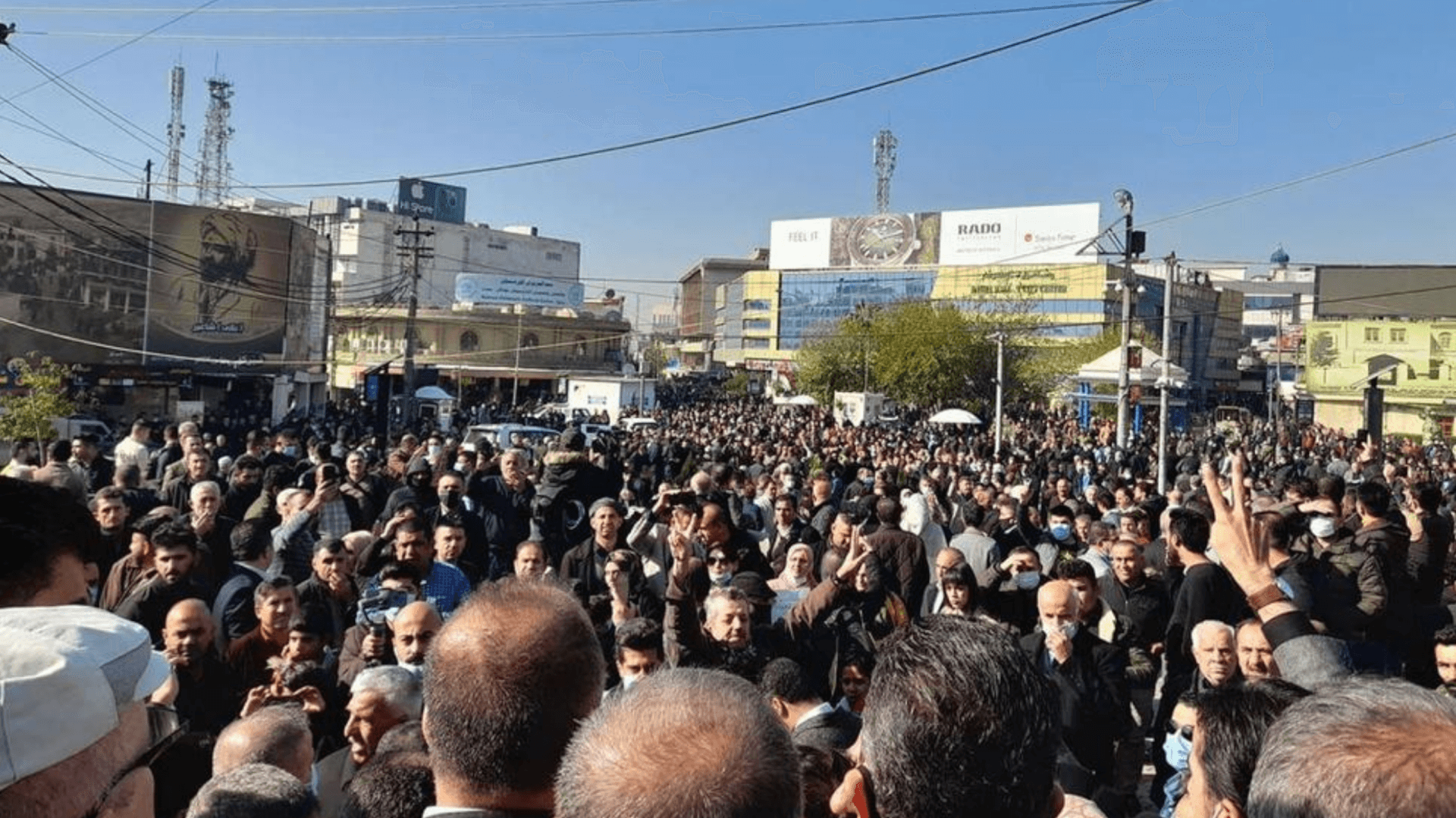Following six days of intense protests in the Kurdish region of northern Iraq’s Sulaymaniyah province that have reportedly resulted in the deaths of at least ten demonstrators, Iraqi President Dr. Barham Salih issued a statement through Iraqi News Agency (INA) demanding an end to the violence.
While affirming the government’s support for people’s right to peacefully protest, Salih stressed that violence was not the solution to confront the “legitimate demands” of citizens, and urged relevant authorities to implement the “radical” reforms needed to address the people’s grievances and end the rampant “corruption, looting, plundering and smuggling”.
“The will and the demands of the peaceful demonstrators must be respected. We demand that the security forces behave in accordance with the law and refrain from using violence,” he added.
The protests first erupted in the Sulaymaniyah governorate on December 2, as teachers and government employees took to the streets demanding the full payment of their salaries, which have been delayed since October. Last week, demonstrators set fire to several government buildings, including the offices of the Kurdish Democratic Party (KDP) and the Patriotic Union of Kurdistan (PUK); both parties have been accused of corruption, and are blamed for high unemployment rates and a lack of public services.
Reports suggest that in order to control the escalation of the demonstrations, internet access was disrupted in the area and temporarily brought down to just 48% of its normal levels. In addition, local news channels were taken off the air. On Monday, a protester was fatally shot by guards outside the KDP headquarters in the town of Chamchamal in northern Sulaymaniyah.
In response to the growing agitations, Kurdish Prime Minister Masrour Barzani shifted the blame of unpaid salaries onto Baghdad through a series of tweets on Monday. He said that the Central government failed to release “our rightful share of the budget,” adding that the current economic crisis “has been forced on us by outside events”.
The current economic crisis has been forced on us by outside events and we are doing our utmost to overcome the financial challenges that have affected the Kurdistan Region, Iraq and the world.
— Masrour Barzani پابەندین# (@masrour_barzani) December 7, 2020
Given the ongoing coronavirus pandemic and an oil price war between Saudi Arabia and Russia, Iraq’s economy has hit an all-time low due to depleting oil revenues. Iraq depends on oil exports for virtually all its state earnings, including some 250,000 barrels per day from Kurdish areas. This economic volatility has left the Kurdish regions heavily vulnerable, giving rise to popular discontent.
This is not the first time that such protests have broken out on the streets of Sulaymaniyah. Previously, in October 2015, five people were killed in a similar wave of agitation. The demonstrations reignited in 2016 and 2017 over the same issue of unpaid salaries. Unfortunately, experts claim that such protests are bound to “re-emerge.” Speaking to Al Jazeera, Shivan Fazil, a researcher at the Stockholm International Peace Research Institute, attributed the instability to a “broken social contract” between the Kurdistan Regional Government and the people.
“The social contract is broken, [and the] KRG is no longer able to fill its end of the bargain as it once did, by providing jobs and services in return for acquiescence,” Fazil said. He further added, “We can see that solutions are unlikely which means protests will return. The impact of COVID-19 and the KRG’s response to it, paired with budgetary disputes and low oil prices, will only act to exacerbate problems that have strained state-society relations.”

